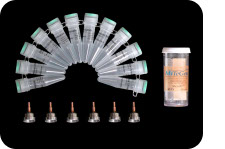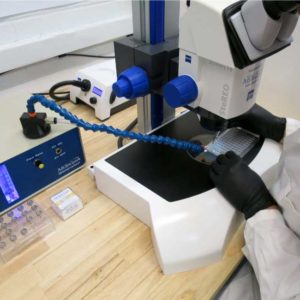JBS Crystal Dehydration and Salvage Kits
Dehydration has been used as a tool for inducing structural changes in protein crystals since the earliest days of protein crystallography.
Full DescriptionProduct Information
Dehydration removes excess solvent, tightens packing of protein molecules, and reduces the size of solvent channels. As a result, it sometimes improves crystal order and diffraction resolution.
By removing excess solvent, dehydration can make successful flash cooling easier, especially for crystals with large initial solvent contents.
When sufficiently dehydrated, many protein crystals undergo structural transformations, yielding alternative crystal packings that may be difficult or impossible to achieve directly during crystal growth.
Of all post-crystallization treatments, dehydration has proven to be the most effective in improving crystal diffraction properties. Of course, dehydration also often severely degrades crystal diffraction, but (amazingly!) original crystal order can usually be fully recovered just by rehydrating.
Dehydration Salts and the Crystal Dehydration and Salvage Kit have been designed for an easy, controlled and reliable way to dehydrate protein crystals and thus provide an efficient tool for altering / improving their diffraction properties.
The Dehydration Salts kit contains 12 saturated salt solutions, 1 ml each, producing relative humidities in the range of 22.5 to 97.3 %.
The Crystal Dehydration and Salvage Kit, shown above, is composed of the 12 dehydration salts, 6 Mitegen GB-B3S goniometer bases and a bottle of 20 MicroRT capillaries.
You may also like…
-
Watershed – Optimized Crystal Harvesting
Prevent loss or damage to the crystals that you’ve spent time growing and optimizing. The Watershed™...


